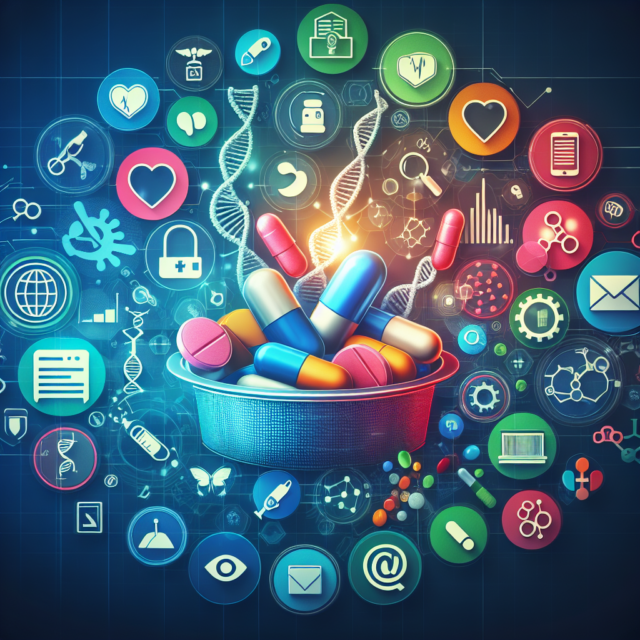
In an era wher
Pharmaceutical digital marketing is in the middle of a rapid transformation. For pharma marketing executives, reaching audiences in meaningful, personalized ways has never been more critical. But with complex regulations, fast-evolving digital tools, and the challenges of building trust, it’s tough to know where to start. In this guide, we’ll break down the essentials of pharmaceutical digital marketing to help you navigate the unique challenges of the industry and maximize your marketing impact.
Understanding Pharmaceutical Digital Marketing
Pharmaceutical digital marketing is about connecting with patients, healthcare providers, and stakeholders through online channels. Why? Because patients are increasingly turning to digital platforms to research health solutions, and doctors are using online tools to stay updated. To put it simply, digital marketing in pharma is the bridge to reach these audiences effectively.
Why Digital Marketing is Essential in Pharma
In a highly competitive and regulated industry, digital marketing is crucial for connecting with audiences and staying relevant. As patients become more digitally savvy, pharmaceutical companies can reach them where they are: on social media, search engines, and healthcare websites. Marketing digitally isn’t just an advantage; it’s a necessity.
Key Digital Channels for Pharma
Pharmaceutical companies have a variety of digital channels at their disposal:
- Website and Blogs: A well-optimized website is essential for credibility and visibility.
- Email Marketing: Email remains a powerful tool for healthcare providers.
- Paid Advertising: From Google Ads to programmatic advertising, paid channels help reach targeted demographics.
- Healthcare Portals and Forums: Platforms like WebMD and Healthline are goldmines for connecting with specific patient groups.
Crafting Effective Content for Healthcare Audiences
In pharma, content is everything. Audiences demand trustworthy, educational, and relevant information. Crafting articles, blogs, and videos that discuss drug benefits, treatment options, and industry trends helps build credibility and establishes the brand as a source of valuable insights.
Search Engine Optimization (SEO) for Pharma
SEO is essential for ranking highly on search engines, and it can be a game-changer for pharmaceutical brands. Targeting long-tail keywords like “best treatments for type 2 diabetes” and “branded drug names” positions your content for the right audience, building traffic and visibility.
Building Trust and Compliance
Building trust with patients and healthcare providers is paramount. But it’s not only about trust; it’s also about staying compliant with regulations like the FDA’s guidelines on digital advertising. Avoid making unverified claims and ensure every piece of content adheres to legal and ethical standards.
Personalized Marketing: Beyond Targeting
Personalization is not just a buzzword; it’s about creating meaningful connections. By using data and predictive analytics, marketers can deliver targeted messages to patients based on their unique profiles, medical history, and preferences. For example, instead of sending generic emails, consider offering relevant tips or reminders tailored to individual patient needs.
Leveraging Social Media in Pharma
Social media is an untapped opportunity for pharma. Platforms like Facebook, LinkedIn, and Twitter allow pharma brands to build community, answer questions, and share breakthroughs. By carefully managing content and following guidelines, companies can create impactful conversations around health and wellness.
Data-Driven Decisions
Data is at the heart of effective digital marketing. From tracking patient engagement to understanding healthcare trends, data-driven decisions help pharma companies stay one step ahead. Tools like Google Analytics and AI-driven insights help pinpoint what’s working, which audiences are most engaged, and where improvements can be made.
Measuring Success with Key Metrics
KPIs are essential to monitor the impact of campaigns. Track metrics like:
- Engagement Rates: Are patients engaging with the content?
- Conversion Rates: Are visitors taking desired actions, like signing up or learning more?
- Cost-Per-Lead (CPL): Is the campaign cost-effective?
These metrics show if your campaigns are performing or need tweaks for better ROI.
Innovations in Pharma Marketing
Innovation drives the pharma industry forward. From AI-powered chatbots that offer drug information to telemedicine platforms that connect patients with doctors, there are endless opportunities to integrate technology into your marketing strategy. Embrace these tools to enhance engagement and build brand loyalty.
Challenges in Pharmaceutical Digital Marketing
Pharma marketers face challenges like regulatory compliance and managing patient data responsibly. Moreover, the risk of misinformation makes it essential to be transparent and accurate in all digital marketing communications. By focusing on trust and compliance, pharma companies can overcome these hurdles.
Future of Digital Marketing in Pharma
As digital tools evolve, the future of pharmaceutical digital marketing looks bright. AI and machine learning will play a significant role in personalizing patient experiences, and data privacy will remain a priority. The companies that embrace these changes will likely lead the industry.
Conclusion
Digital marketing has transformed the pharmaceutical industry by enabling companies to connect with patients and healthcare providers in personal, impactful ways. Embracing best practices, focusing on compliance, and staying ahead of innovations are essential for long-term success. With the right approach, pharmaceutical companies can effectively build trust and deliver value to their audiences.
FAQs
1. What are the primary benefits of digital marketing in pharma?
Digital marketing enables pharma companies to connect with patients, increase brand awareness, and build trust by sharing relevant, compliant content.
2. How does SEO impact pharmaceutical digital marketing?
SEO helps pharma brands rank higher in search results, making it easier for patients and healthcare providers to find their content and learn more about treatments.
3. Is social media effective for pharmaceutical marketing?
Yes, with careful content management, social media can effectively engage audiences, create community, and share health insights.
4. What challenges do pharma marketers face in digital marketing?
They face regulatory compliance challenges, data privacy concerns, and the need to maintain credibility and trust.
5. How can data-driven decisions enhance pharma marketing?
Data insights allow marketers to refine strategies, understand audience needs, and improve campaign effectiveness based on real-time information.

